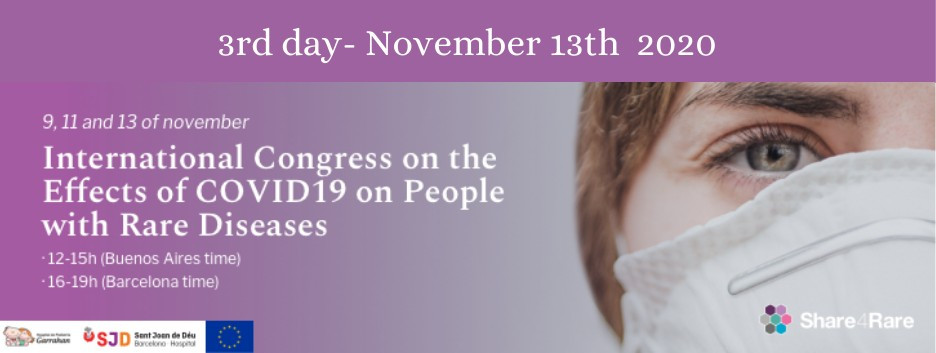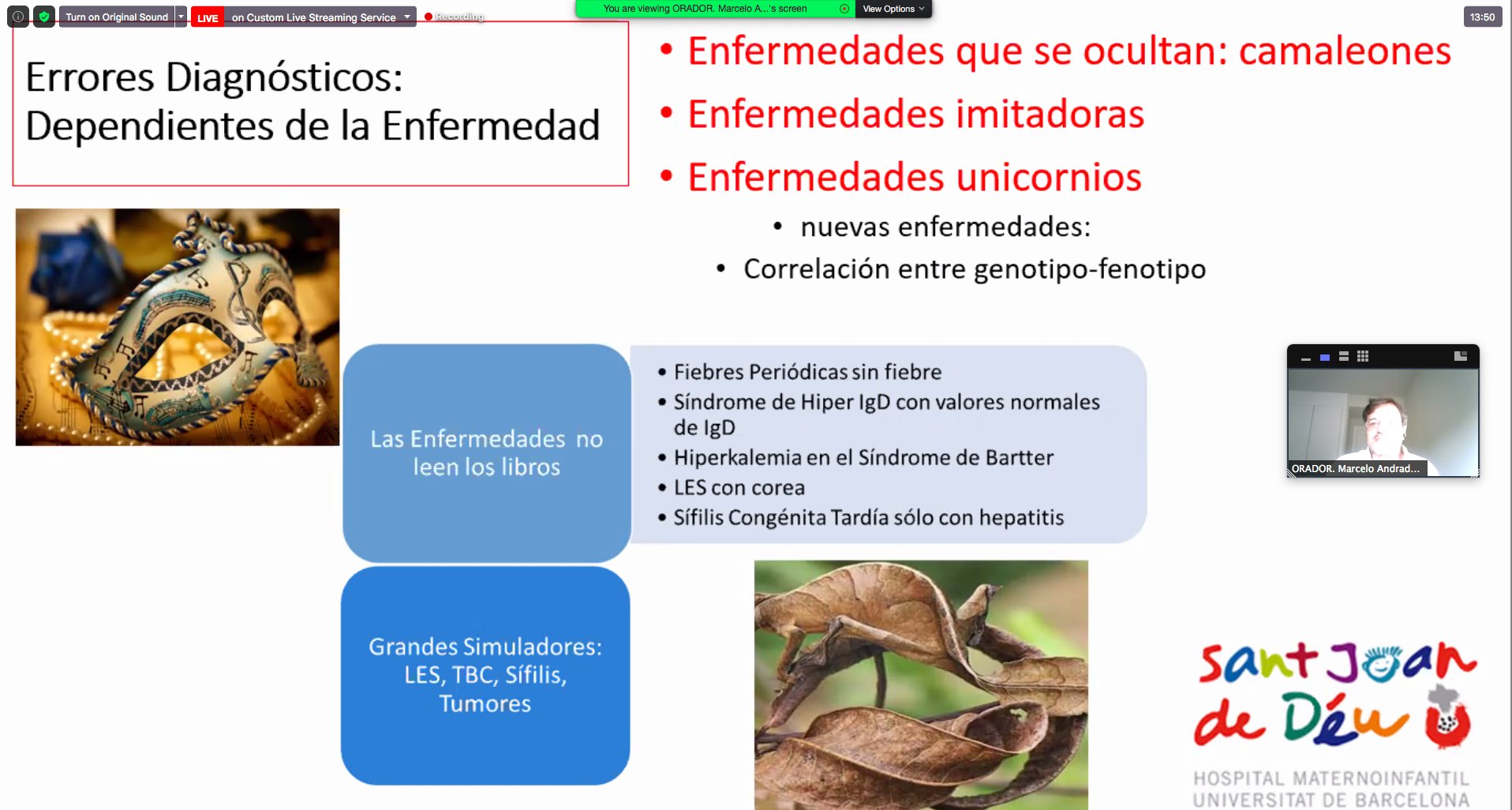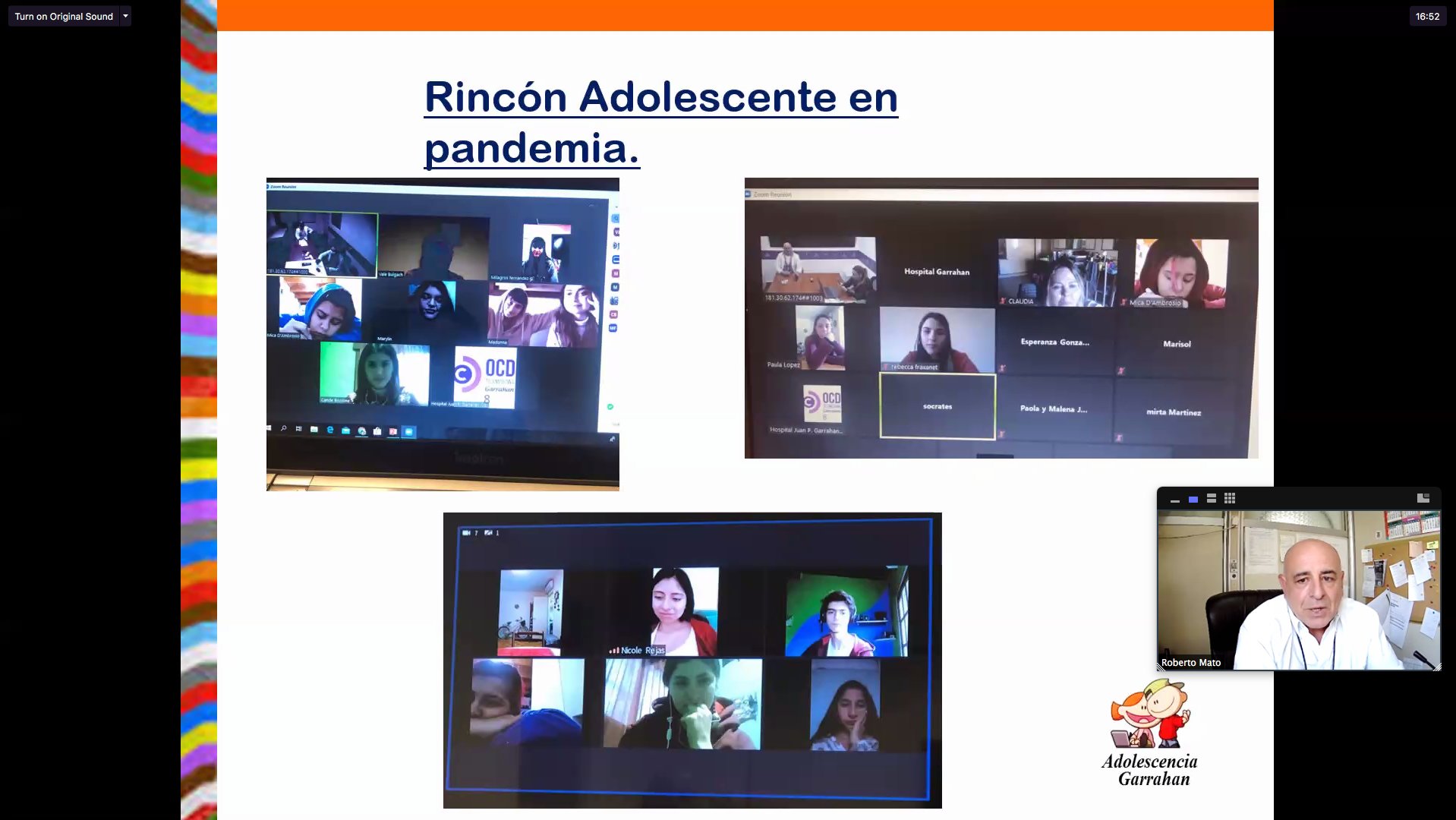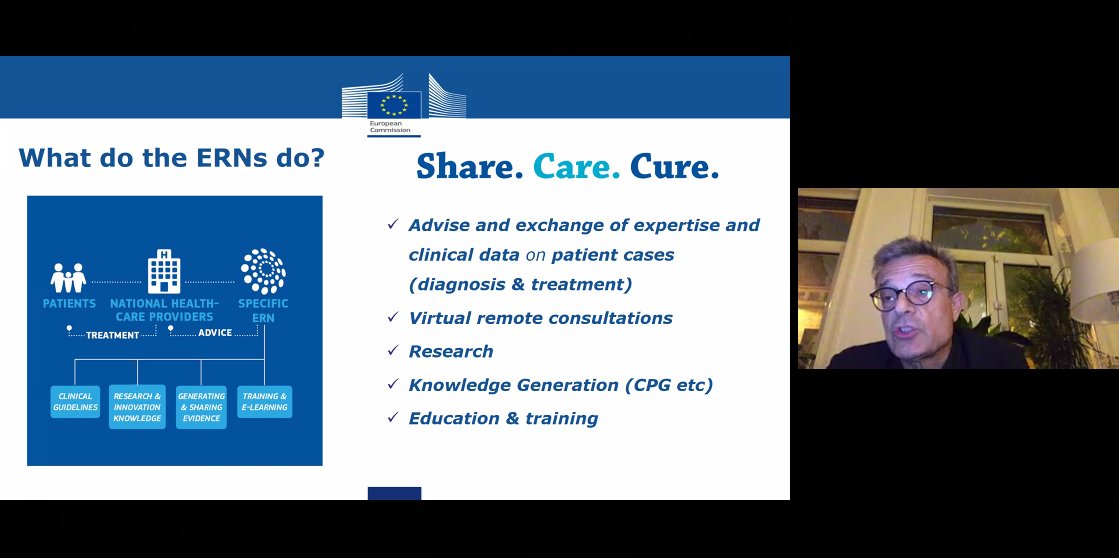
Report - 3rd day of the International Congress on the Effects of COVID-19 in People with Rare Diseases

The challenge of undiagnosed patients: challenges and needs
Dr. Marcelo Andrade opened the first table of the third day of the congress. This paediatrician at the Sant Joan de Déu Hospital explained that, in the case of people without a specific diagnosis, we must differentiate 3 different groups: a group of people affected from diseases or syndromes that have not been described yet (SWAN, Syndromes Without a Name), another group of people who have not been diagnosed yet but whose syndrome has been described by science, and finally another group of people who have been misdiagnosed.

Dr. Marcelo Kauffman, a neurologist at the Dr. José María Ramos Mejía Hospital in Buenos Aires was the next to speak and highlighted the importance of teamwork and avoiding authority bias when visiting and treating patients without a diagnosis.
Recovery and effects of COVID-19. Mental health and rare diseases during the pandemic
The first one to speak at the second table was Dr. Roberto Mato, pediatrician and specialist in adolescent care at Hospital Garrahan, who showed several initiatives that are being carried out with teenagers admitted to the mental health hospital.

Dr. M. Alejandra Bordato, specialist in child and adolescent psychiatry and psychology at Garrahan Hospital, emphasised the importance of facilitating integration and preventing health problems to anticipate what may happen in the future in the life of these children.
Luca Sangiorgi, coordinator of the European Reference Network Bone Rare Diseases ERN BOND, described the actions carried out by the ERN during the pandemic to help people with rare bone diseases.
Dr. Esther Via Virgili, psychiatrist and researcher, and Dr. Xavier Estrada, psychiatrist, both from the Unit of Psychiatry of the Sant Joan de Déu, presented some preliminary results of the mental health study that has been carried out in the institution during the pandemic.
ERNs from the European Commission
The last session was conducted by Dr. Enrique Terol, representative of the European Commission and the European Reference Networks (ERNs). The session focused on the role of ERNs during the pandemic and on the actions carried out from the different networks to alleviate the effects of the pandemic on the community of patients and caregivers.

The congress was closed by Dr. Francesc Palau, director of the IPER Sant Joan de Déu.
The recording of the third day is now available on the Share4Rare YouTube channel.
